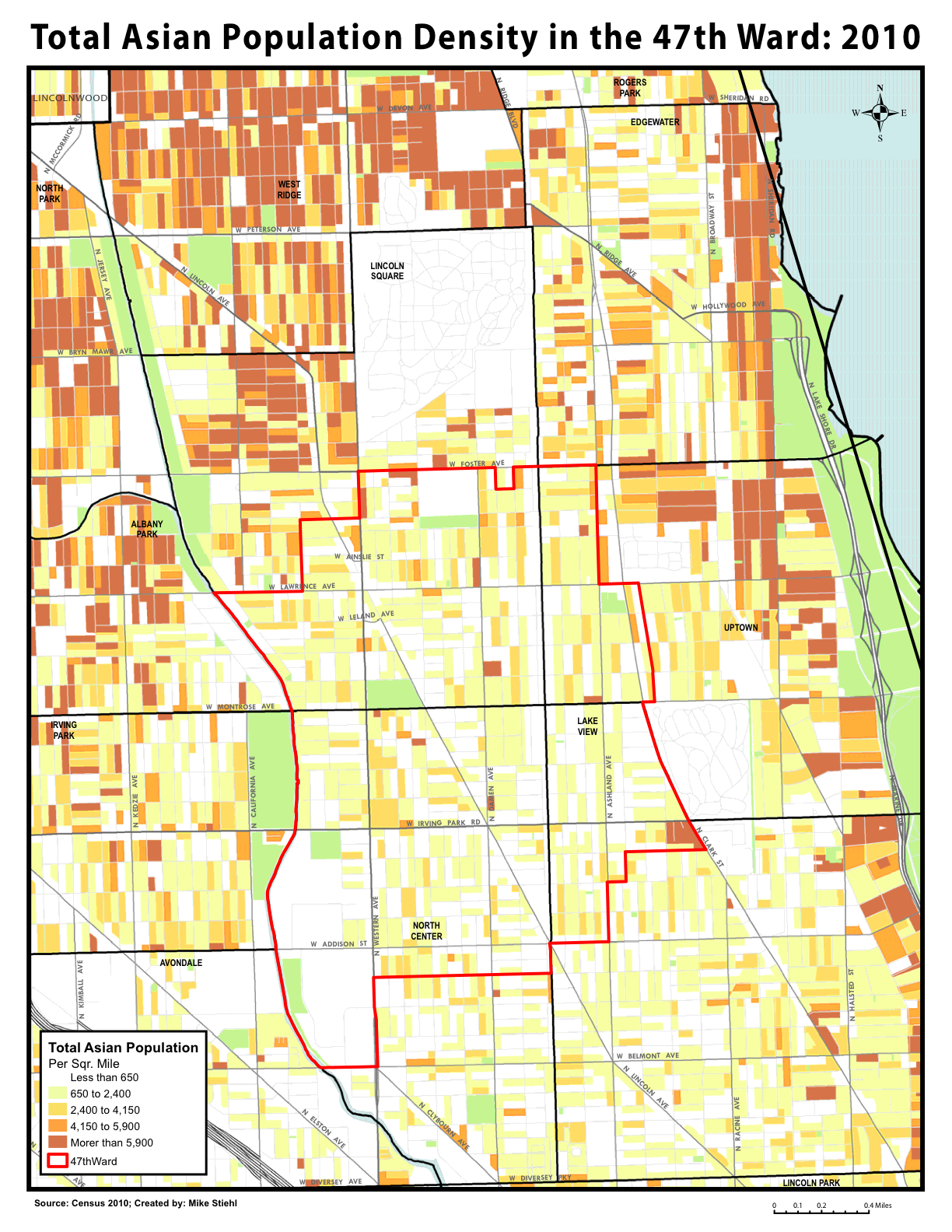By Kiljoong Kim
Nearly five years ago, I wrote my first column for the Beachwood Reporter, about why Chicago has never had an Asian alderman. I made the point that Asian Americans were victims of Chicago racial politics that had to balance existing power of African Americans on one hand and emerging forces of Hispanics on the other. In the process, areas like Chinatown, where there is the greatest concentration of Asian votes, were chopped into four different wards, thereby disabling their chance at political representation in the city.
When Ameya Pawar won the election for 47th Ward last week, he finally became the first Asian American alderman. Even among Asian Americans in Chicago, Pawar was not a heavily groomed candidate like Naisy Dolar was in 2007 when she unsuccessfully challenged Berny Stone in 50th Ward, nor did he win in a ward that has heavy concentration of Asian votes.
 (View enlarged image)
(View enlarged image)
–
This unexpected victory by a 30-year-old man from suburb of Riverside with little money is not simply historic for Asian Americans, but his victory speaks volume about shift in local politics in Chicago.
Pawar’s victory came in an area where a different type of concentration played a role. Rather than ethnic or racial concentration, gentrification that swept through the neighborhoods in the ward – like the west end of Lakeview and St. Ben’s, as well as trendier areas like Lincoln Square and Ravenswood – changed the composition of its constituents from largely working middle-class to upper middle-class home or condo owners.
But unlike other gentrified neighborhoods, where residents are constantly churning in and out, many of the new residents in neighborhoods like Lincoln Square organized themselves to prevent further condo development that would attract even more newcomers like themselves.
Outgoing alderman Eugene Schulter played a vital role – both in bringing in the new wave of residents and then making them feel at home.
During his 35-year tenure, Schulter managed to displace much of the ward’s immigrant, minority, and poor population and accommodated young urban professionals who were being priced out of Lincoln Park, Bucktown, and Wrigleyville.
In many ways, his effort to secure his own position and votes through folding in these new constituents into old guard machine politics is the very reason his self-selected successor failed to capture their support in this latest election.
Under the name of neighborhood preservation, Schulter and his supporters maintained low density and prevented the neighborhoods from being overbuilt by condominiums.
Once the ward was stabilized, however, Schulter’s function was no longer needed and while he may have kept his job anyway had he run for re-election out of the loyalty of his constituents and gratitude for his work, the majority of voters in the ward felt no need to transfer that loyalty and gratitude to Schulter’s preferred successor, Tom O’Donnell.
As a young, highly educated professional with a reform-driven agenda, Pawar cut a profile more in line with the new ward that Schulter built; another Machine pol to keep the heathens away was no longer necessary.
That’s not to say that racial politics is dead in Chicago; it’s most certainly not. But Pawar’s victory – on a shoestring – suggests that city politics has become a little more complex than it once was as the class and culture of newer, affluent residents adds to the mix.
On one hand, Chicago’s persistent balkanized political culture and its high level of racial segregation is likely to maintain white, black and Latino wards and continue the historical trend of racial politics in South, West, Northwest, and Southwest Sides of the city.
On the other hand, those areas that are dominated by young, affluent, and relatively new constituents, such as the South Loop, the West Loop, University Village, Logan Square, and Wicker Park, will likely vote more based on characteristics beyond race and demand different types of political representation.
The result will be a shift in the composition of the city council – but not always for the reasons we may see on the surface.
–
Kiljoong Kim is a research consultant and doctoral student in sociology at the University of Illinois at Chicago. He welcomes your comments. Read more in the Who We Are archives.
Posted on February 28, 2011


